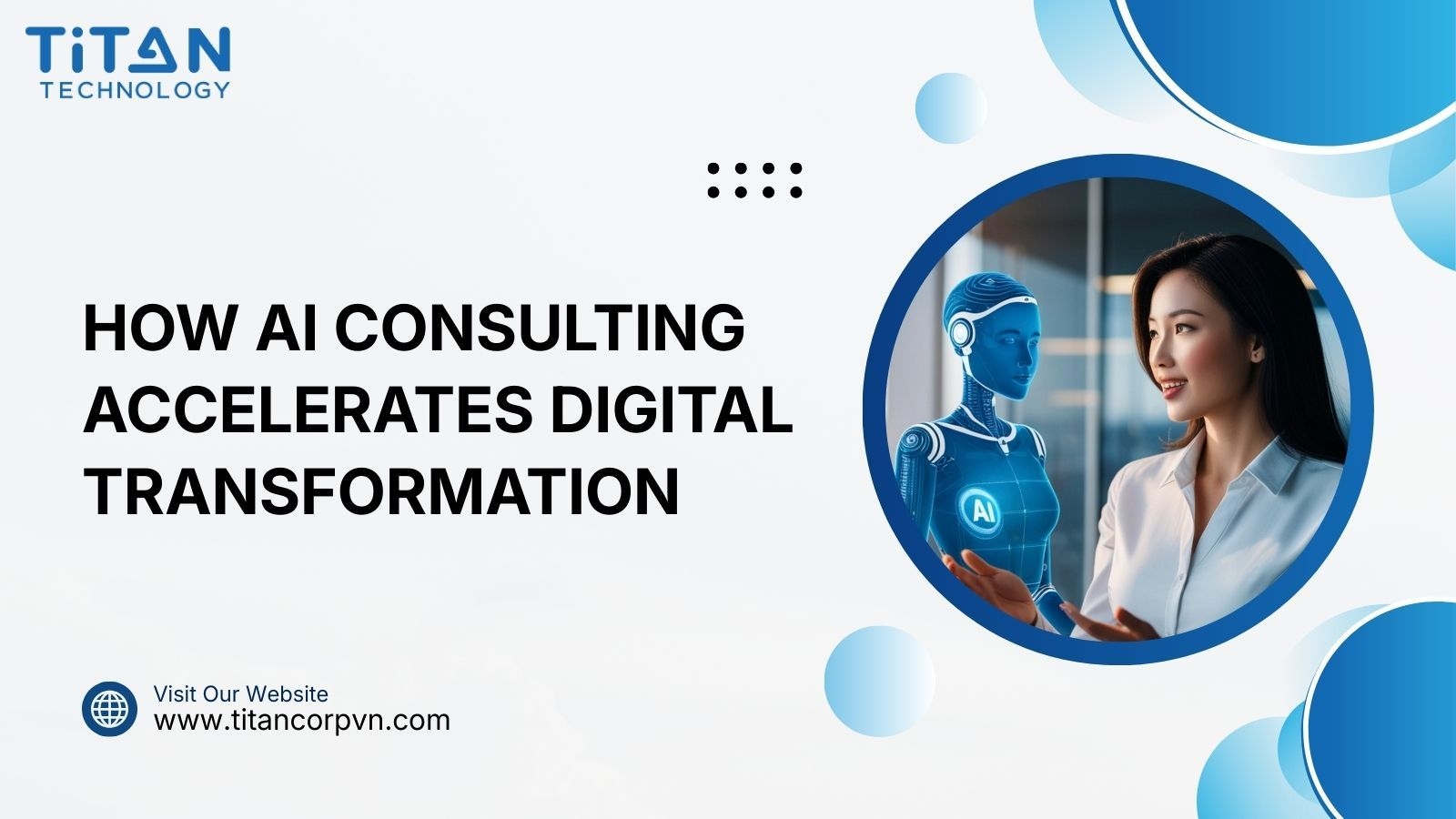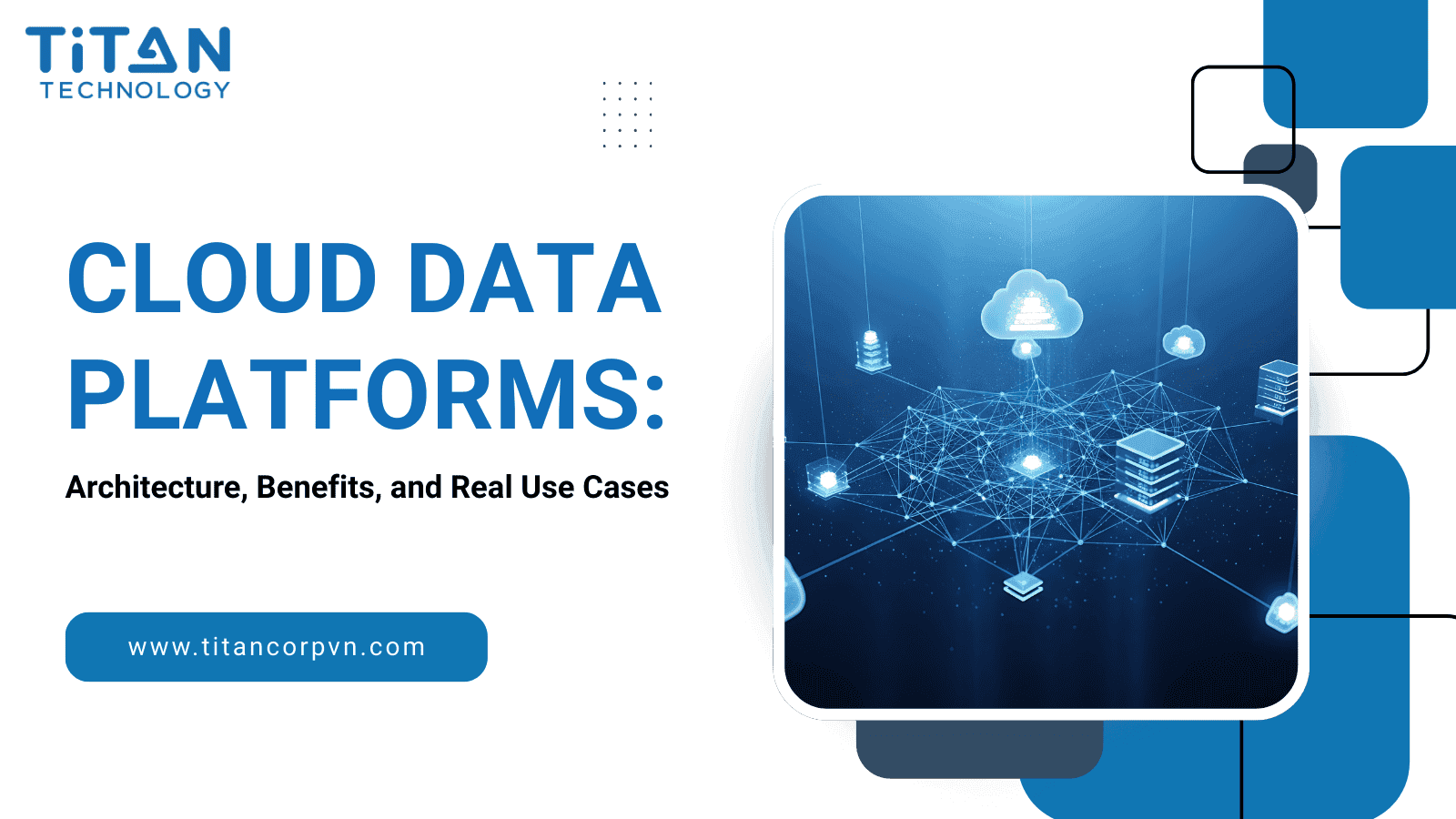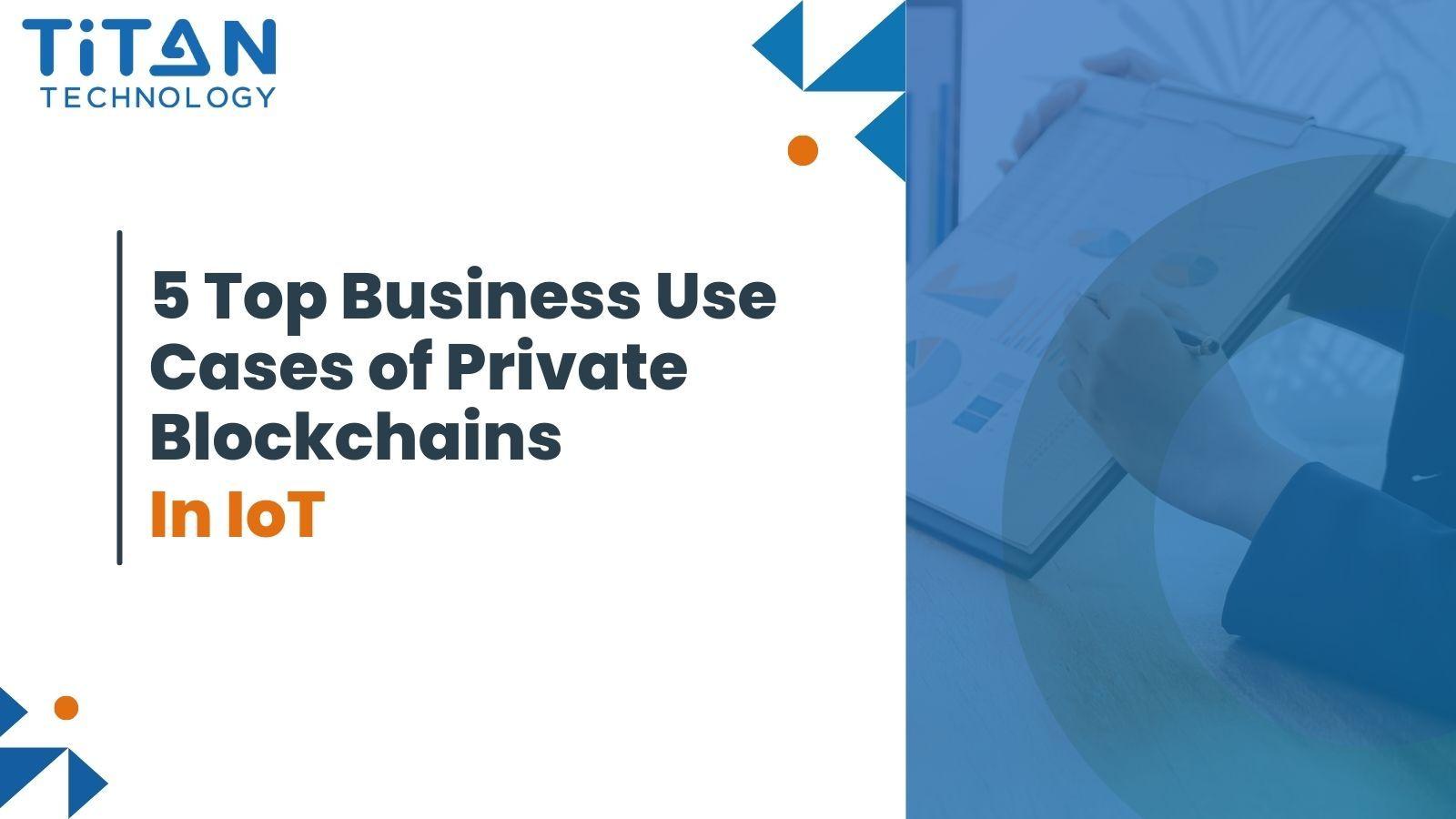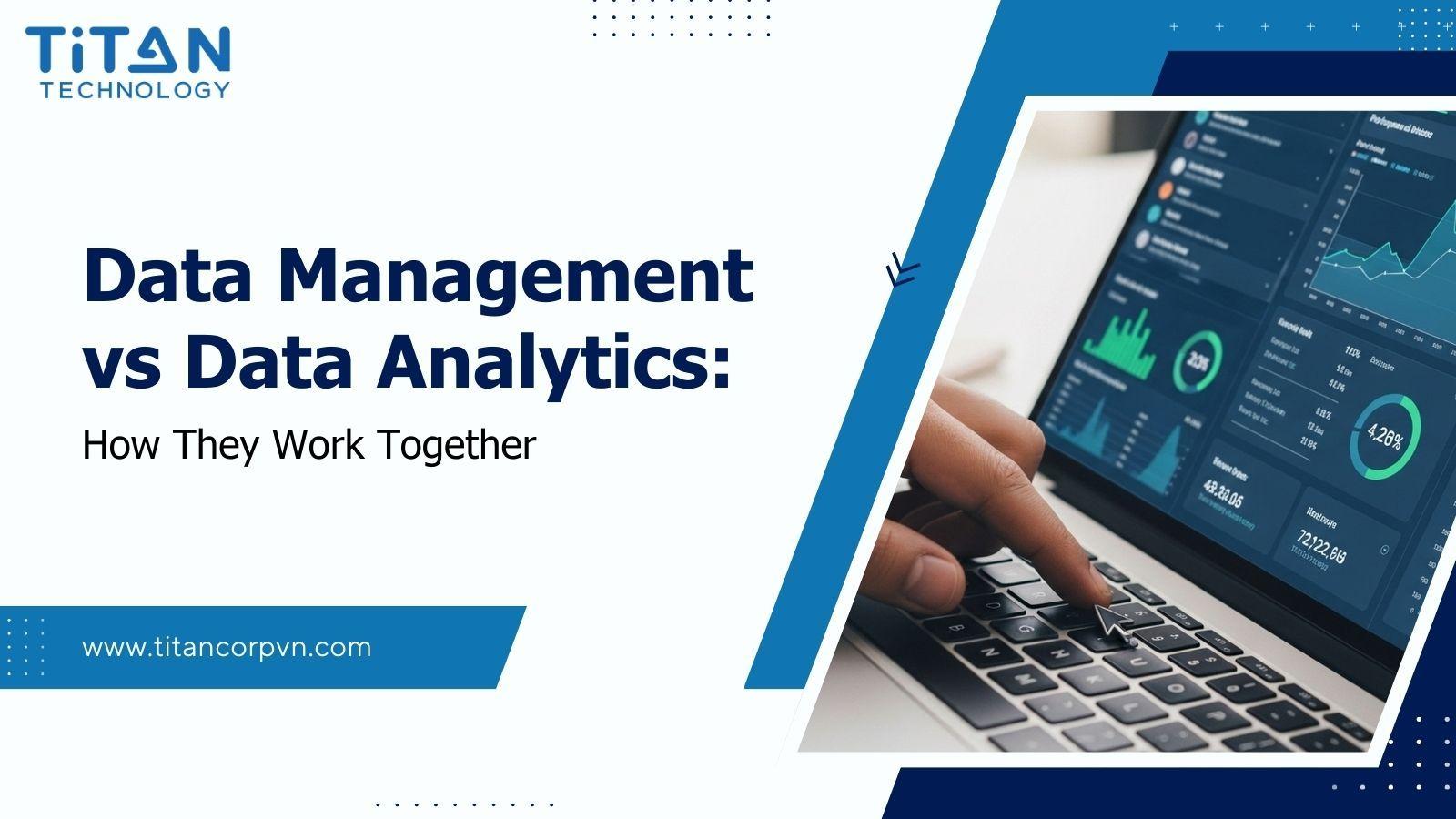Summary
AI has become essential for business growth, yet many digital transformation efforts fail due to unclear strategy and weak data foundations.
AI consulting guides businesses from initial ideas to practical results through structured planning and clear execution.
Companies gain faster workflows, reduced manual effort and more accurate decision-making.
Common applications include automation, predictive analytics, AI assistants and improved customer engagement.
Industries such as finance, logistics, healthcare, retail and manufacturing all benefit in different ways.
With customer expectations rising and competition increasing, this is the right moment for businesses to explore AI with proper guidance.

By 2026, digital transformation is entering a completely new phase. AI is no longer a nice-to-have enhancement. It is becoming a core operational requirement as businesses accelerate, markets shift constantly, and customers expect higher accuracy, better experiences, and clear results. Traditional transformation approaches simply cannot keep up, especially when many organizations still operate with fragmented systems and data that is difficult to use effectively.
This is where AI consulting becomes essential. It offers the strategic direction and technical expertise needed to bridge the gap between intention and real execution. With the right guidance, companies can modernize workflows, unlock the full value of their data, and scale AI in ways that directly support business goals. AI stops being a complex concept and becomes a practical engine for productivity and sustainable growth.
For organizations ready to adopt AI with confidence, the journey begins with a clear strategy supported by strong governance. You can explore more on the Titan Technology homepage and through insights from the latest Gartner AI adoption research.
Why Many Digital Transformation Efforts Fail Without AI Consulting
Digital transformation has become a priority for most organizations; however, a significant number of these initiatives still fail to deliver meaningful results. McKinsey highlights that most transformations break down not because of a lack of ambition but because companies underestimate the structural challenges beneath the surface. Technology alone has never been the issue.
A major point of failure comes from weak data readiness. Systems remain disconnected, data quality is inconsistent, and teams often struggle to translate information into actionable decisions. Without a solid data foundation, even the most advanced AI or automation programs cannot produce sustained value.
Governance is another critical gap. Many organizations adopt new digital tools without a clear framework for managing risks, ensuring transparency, or controlling the behavior of AI over time. As AI becomes embedded in day-to-day operations, the absence of governance increases compliance risks and operational uncertainty. Businesses can benefit from referencing recognized frameworks such as the NIST AI Risk Management Framework to establish initial best practices.
Finally, many transformation efforts lack a clear ROI roadmap. Projects are approved based on assumptions rather than measurable business outcomes. This makes it difficult to scale, evaluate success, or maintain leadership buy-in.
AI consulting addresses these issues early. Aligning strategy, data, governance, and execution ensures that the transformation progresses with clarity, stability, and measurable results.
What AI Consulting Really Involves: Beyond Advice to Execution
AI consulting today is very different from the traditional idea of bringing in an advisor to suggest what you “could” do. Businesses already know AI has potential. What they struggle with is figuring out how to apply it in a way that actually works. Teams are dealing with scattered data, inconsistent systems, and unclear priorities. Without the right guidance, even the strongest intentions can stall before any meaningful progress is made.
Modern AI consulting is meant to remove that uncertainty. It provides organizations with the clarity they need to transition from ideas to tangible outcomes. Instead of offering generic recommendations, the focus is on understanding how the business operates, identifying what truly matters, and creating a clear path that teams can follow with confidence.
At Titan, we support this journey through a structured approach that adapts to each organization’s needs. It is not a rigid framework. It is a practical method shaped by the realities of how businesses work. The process includes several essential steps that help leaders move forward with clarity and control:
Business value and ROI modeling: Clarifying where AI can make a measurable difference and how those results support long-term goals.
Data readiness assessment: Understanding whether existing data is reliable, accessible, and safe to use.
Use-case prioritization: Choosing which initiatives deserve attention now, and which ones should follow later.
Architecture and solution design: Defining the technologies and integrations needed to support sustainable AI adoption.
MLOps and deployment: Ensuring AI solutions run smoothly, remain stable, and can be improved as the business evolves.
AI governance: Setting rules that keep AI transparent, compliant, and aligned with organizational standards.
Change management and enablement: Helping teams adopt AI with confidence so new tools actually become part of everyday work.
When organizations follow a clear process like this, AI becomes much more than a promising concept. It starts to show up in daily decisions, improves workflows, and opens up new possibilities for growth. That is the moment AI begins to create real value, rather than simply being talked about.
The Strategic Value of AI Consulting for Modern Businesses
AI is becoming an important part of how modern businesses operate, but the real value of AI does not come from simply adopting new tools. It comes from knowing how to use those tools in a way that supports day-to-day work, strengthens decision-making, and creates results that teams can clearly see. This is the practical value that AI consulting brings.
For many businesses, the first noticeable improvement is speed. AI helps teams handle repetitive tasks, search for information, and prepare documents much faster. When less time is spent on manual work, people can focus more on customers, problem-solving, and activities that drive growth. As a result, improvements happen faster and with fewer disruptions.
Accuracy also increases. AI helps reduce avoidable mistakes and ensures decisions are supported by consistent, reliable insights. This becomes especially helpful for growing businesses, where even small errors can slow operations or negatively impact customer experience.
Another major benefit is scalability. Processes that once depended heavily on manual effort become more streamlined and repeatable. This allows businesses to maintain consistent quality even when workloads increase or market demands shift. With proper governance in place, AI systems remain stable, secure, and trustworthy.
Ultimately, AI consulting enables businesses to understand where AI truly adds value and how to effectively implement it, resulting in measurable benefits. When AI is guided by a clear strategy and aligned with business goals, it becomes a practical engine for productivity and sustainable growth.
Practical AI Use Cases Transforming Businesses in 2026
AI adoption is accelerating across various types of businesses, and one of the clearest ways to understand its impact is to examine how it is already being utilized in everyday operations. These use cases show that AI is no longer a futuristic concept. It is a practical tool that helps teams work smarter and respond more quickly to market changes.
1. Predictive Analytics and Better Decision-Making
Many businesses now use AI to forecast trends, anticipate demand, and identify potential risks before they occur. This provides leaders with clearer visibility, enabling them to make decisions with greater confidence.
2. Workflow Automation in Operations
AI is increasingly used to automate repetitive tasks such as document processing, reporting, and quality checks. These improvements free up staff time and reduce delays caused by manual work.
3. AI Assistants and Copilots for Teams
Modern AI assistants help employees draft content, search for information, and complete complex tasks more efficiently. This reduces onboarding time and supports teams even when workloads increase.
4. Faster Knowledge Retrieval and Research
AI can scan large volumes of documents and instantly surface relevant information. This shortens preparation time for analysis, planning, or customer-facing work.
5. Smart Quality Assurance and Testing
Businesses developing software or digital products benefit from AI-based testing tools that detect issues early and improve release speed. This is especially helpful for teams working under tight deadlines.
6. Improved Customer Engagement
From intelligent chatbots to personalized recommendations, AI enables more responsive and meaningful interactions with customers.
These use cases demonstrate how AI delivers practical value to businesses of all sizes, not just large organizations. The key is knowing where AI fits and how to integrate it in a way that supports real operational needs.
Common Scenarios Where AI Consulting Reduces Risk and Speeds Up Transformation
Not every business needs a large transformation project to benefit from AI. In many cases, the biggest improvements come from solving familiar, everyday challenges that hinder team productivity. These situations occur across many industries, highlighting why AI consulting is often the most reliable approach to moving forward with clarity.
One common scenario is when a growing business struggles with repetitive, manual tasks such as document review, reporting, or data checking. These activities are necessary but consume valuable time that teams would rather spend on customers or strategic work. AI consulting helps companies map out which tasks can be automated safely and how to introduce those tools without disrupting ongoing operations.
Another scenario involves scattered data. Many businesses want to utilize AI but feel hindered because information is stored in various formats or systems. With the right guidance, they can understand what data is usable, what needs improvement, and how to build a simple path toward better data quality.
A third scenario appears when teams are unsure about risks. Leaders may worry about making the wrong investment or adopting tools that their staff cannot maintain. AI consulting provides a structured approach that reduces uncertainty and ensures every step aligns with actual business needs.
And in many cases, companies simply want to explore AI but lack a clear starting point. A consultation helps them identify quick wins, realistic timelines, and the safest way to begin.
These examples demonstrate a consistent pattern: AI becomes significantly more effective when businesses have support in selecting the right solutions and implementing them with confidence. Instead of guessing, teams move forward with clarity and measurable improvements.
How AI Consulting Builds Governance, Security and Compliance
As businesses begin exploring AI, many quickly realize that the biggest challenges are not always technical in nature. They often involve questions of safety, control, and responsibility. Leaders want to know how AI decisions are made, who has access to what information, and how to ensure systems behave as expected over time. Without a clear governance structure, these concerns can become real obstacles to adoption.

AI consulting helps businesses approach these questions with confidence. It creates a foundation of trust by ensuring that every AI initiative is supported by solid rules, well-defined processes, and responsible practices. This gives teams the clarity they need to move forward without fear of unexpected risks.
A key part of governance is transparency. Businesses require a clear understanding of how data flows through their systems and how AI models inform their decisions. With proper guidance, companies can set up monitoring, review steps, and quality checks that keep everything traceable and easy to audit.
Security also plays a central role. As organizations work with increasing amounts of data, it becomes crucial to protect that information and manage who has access to it. AI consulting helps define controls and safeguards that keep sensitive information secure and aligned with internal policies and regulations.
Compliance is another area where guidance makes a meaningful difference. Even small businesses must ensure that their AI usage follows relevant standards and best practices. A structured approach helps prevent issues early and reduces operational risk.
When these elements are in place, AI becomes much easier to manage. Teams feel more confident, leaders gain clearer oversight, and the entire organization builds the foundation needed for safe and sustainable adoption.
Why Now Is the Time for AI Consulting
More businesses are exploring AI than ever before, and the pace of change is becoming impossible to ignore. Customers expect faster responses, smoother experiences, and more personalized services. At the same time, market conditions shift quickly, and internal teams face increasing pressure to keep up. These realities are pushing many companies to accelerate their digital transformation plans.
The challenge is that adopting AI without guidance can feel overwhelming. There are too many tools to choose from, too many questions about data, and too much uncertainty about where to begin. This is why more businesses are turning to AI consulting now rather than waiting. The goal is not to adopt technology for its own sake. The goal is to establish a clear path that outlines the first steps, identifies potential pitfalls, and provides guidance on how to move forward safely.
Another reason timing matters is competitive pressure. When one business starts using AI to enhance workflows, reduce manual effort, and deliver improved customer experiences, others in the same market feel the impact. Delaying adoption can create gaps that are difficult to close later.
Finally, teams themselves are becoming more open to AI. Staff members want tools that help them work more efficiently and reduce routine tasks. With proper guidance, companies can introduce AI in a way that supports the team rather than overwhelming them.
These factors make today the right moment to explore AI with the support of a consulting partner. Moving early helps businesses build momentum, reduce risks, and stay ahead in a rapidly changing landscape.
Conclusion
AI is no longer something businesses can afford to think about “later.” It is becoming a practical tool that helps teams work more efficiently, understand their data more clearly, and respond to customers with greater speed and accuracy. But like any meaningful change, the value of AI depends on how well it is introduced, managed, and aligned with real business needs.
AI consulting provides companies with the support they need to navigate this process with clarity. Instead of guessing which tools to adopt or worrying about risks, businesses can make confident decisions and focus on improvements that truly matter. With the right guidance, AI becomes easier to adopt and has a far greater impact.
For many organizations, the first step is simply understanding where to begin. Whether the goal is to automate routine tasks, enhance decision-making, or optimize operations, a structured and responsible approach will consistently yield better results.
If you are considering how AI can support your business, you can explore more insights or connect with our team.



